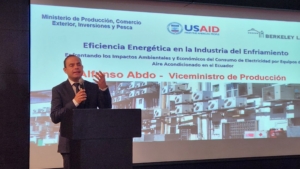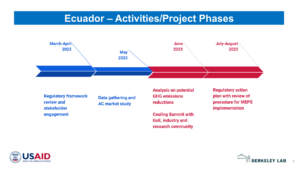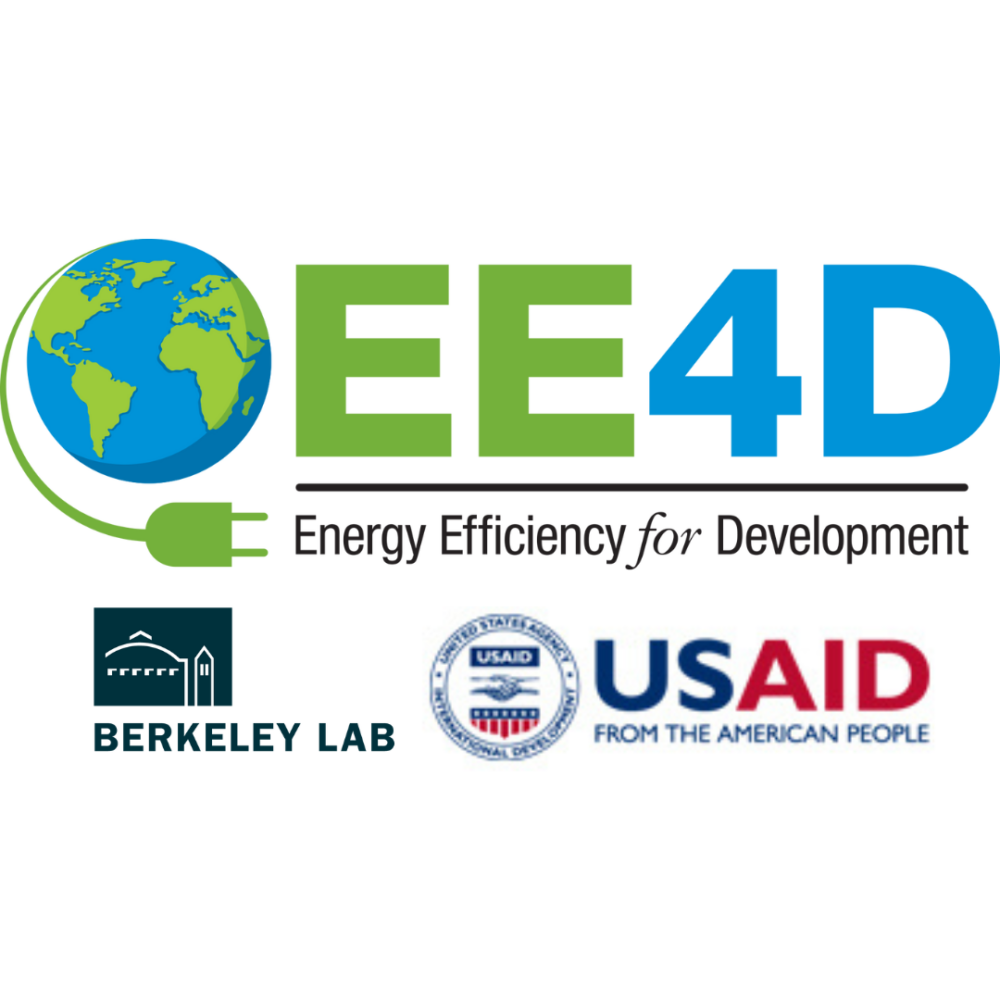 https://ee4d.org/wp-content/uploads/sites/40/2024/03/pexels-kelly-2873419-scaled.jpg
1707
2560
maryweigel
https://ee4d.org/wp-content/uploads/sites/40/2024/04/Untitled-design-1000x1000.png
maryweigel2024-03-08 15:49:532024-04-04 16:47:21“Cooling Summit” in Ecuador addresses impacts of cooling electricity consumption
https://ee4d.org/wp-content/uploads/sites/40/2024/03/pexels-kelly-2873419-scaled.jpg
1707
2560
maryweigel
https://ee4d.org/wp-content/uploads/sites/40/2024/04/Untitled-design-1000x1000.png
maryweigel2024-03-08 15:49:532024-04-04 16:47:21“Cooling Summit” in Ecuador addresses impacts of cooling electricity consumptionUpdating the Minimum Energy Performance Standards (MEPS) for Air Conditioners (ACs) in Ecuador

In response to the country’s electricity shortage crisis, attributed partly to a heavy reliance on hydropower, USAID and Berkeley Lab have compiled a proposal to update Ecuador’s MEPS for ACs. Their study, which informed the proposal, highlights a surge in AC usage, contributing to a 57% increase in electricity consumption over four years. The existing MEPS, established in 2013, is outdated.
The proposed updates aim to balance both cost-effectiveness and significant energy savings. There are several potential benefits, including savings in electricity bills and avoided investments in power capacity. Collaboration among many stakeholders is needed to enhance energy efficiency— technical and policy recommendations such as establishing AC testing labs and efficient equipment access programs through international partnerships can help with this process.
Objective
Provide technical assistance to the GoE to update the minimum energy performance standard (MEPS) for room air conditioners. The main output is a Regulatory Action Plan that includes recommendations on adequate energy efficiency (EE) levels and technical requirements for the MEPS update and estimated climate and economic benefits resulting from this intervention. (Phase I)
WHY ACs?
- In the last ten years the number of A/Cs in Ecuador has tripled
- In the next ten years, we expect that number to double
- By 2050, the number of A/Cs in Ecuador will quadruple

Speaker at Cooling Summit held in Quito, Ecuador; November 2023
Benefits
ENERGY SAVINGS
- Well-designed MEPS achieve significant energy savings at scale over time
CLIMATE CHANGE
- GHG emission reductions are achieved in support of NDC goals
ECONOMY
- Energy bills savings for consumers; Innovation and competitiveness increase
IMPLEMENTATION
- Established strategies for implementation and monitoring can be leveraged to increase capacity
Project Phases






